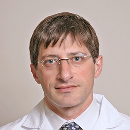Renowned Speakers

Issam-A-Mikati
Northwestern University USA

Sergey-Suchkov
Sechenov University, Moscow Engineering Physical University (MEPhI) Russia

Vincenzo-Cianci
University of Swansea UK

Bruce-Leonard
University of Texas Medical Branch, Galveston, Texas UK

M-Eileen-Walsh
College of Nursing at the University of Toledo USA

Susan-George
Heart Failure Nurse Practitioner USA

William-E-Feeman
Jr.Wood County Hospital USA

Hilario-Noveno
St. Paul University Manila Graduate School Philippines
Recommended Global Pediatrics Webinars & Conferences
Europe & UK
Asia Pacific & Middle East
Canada
Pediatric Cardiology Conference 2026
To Collaborate Scientific Professionals around the World
Conference Date May 21-22, 2026
For Sponsors & Exhibitors
Speaker Opportunity
Useful Links
Past Conference Report
Supported By
All accepted abstracts will be published in respective Conference Series International Journals.
Abstracts will be provided with Digital Object Identifier by
